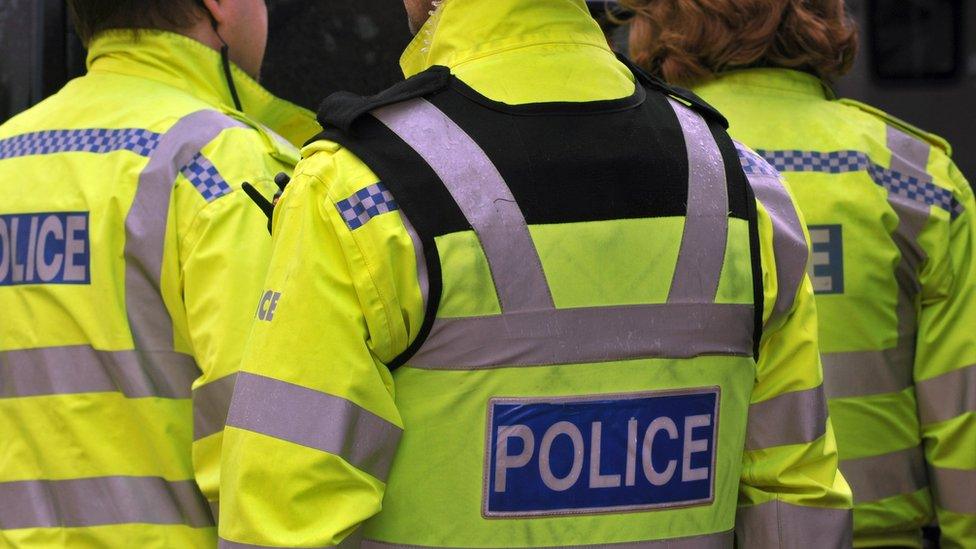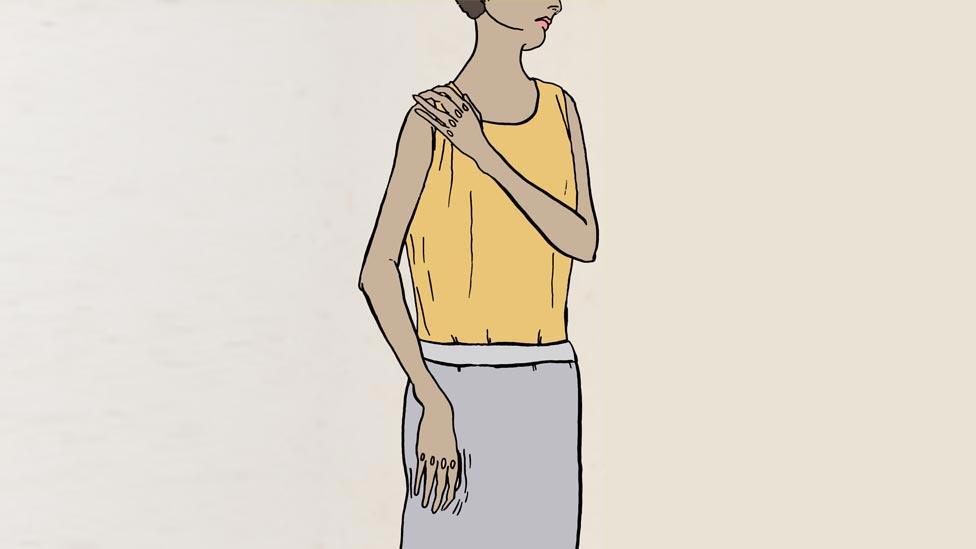Sexual harassment of police staff must be 'rooted out'
- Published

Police chiefs have pledged to tackle sexual harassment of their staff in "civilian roles" after a survey revealed the scale of the problem.
Incidents included inappropriate touching, leering and staff pressurised into having sex with colleagues.
The National Police Chiefs' Council said such behaviour must be "rooted out".
The survey of almost 1,800 police staff in England, Wales and Scotland was carried out by Unison.
Staff who were surveyed included police community support officers, crime scene investigators, clerks, fingerprint experts and detention officers.
The survey did not look at the experiences of police officers.
Half of respondents had heard sexualised jokes and one in five had received a sexually explicit email or text from a colleague.
Around one in 25 said they had been pressured into having sex, and one in 12 had been told that sexual favours could result in preferential treatment.
The survey also found:
a third had faced intrusive questioning about their private lives
more than a fifth had experienced inappropriate staring or leering
almost one in five had been touched in a way that made them feel uncomfortable
In the vast majority of cases, the survey respondents said colleagues - either police officers or staff - were responsible.
'Outdated and unacceptable'
The National Police Chiefs' Council (NPCC) lead for professional ethics, Chief Constable Julian Williams, said the research revealed "outdated and unacceptable behaviour" that must be "rooted out".
Such behaviour "falls short" of standards set out in the Code of Ethics, which police officers and staff are expected uphold, he said.
He said the NPCC had committed to developing a comprehensive action plan by October to address the issue.
"Some of the behaviour described is predatory and requires the strongest response from police with individuals removed from the service.
"Other behaviours like the repeated telling of sexualised jokes may not be malicious in intent but are misguided and damaging and our focus will be on finding effective ways of challenging them," he added.
Unison assistant general secretary Christina McAnea said perpetrators should be "confronted and dealt with immediately" or "their behaviour could escalate from filthy jokes to more serious forms of sexual harassment".
- Published27 March 2018

- Published2 April 2018

- Published25 April 2018
